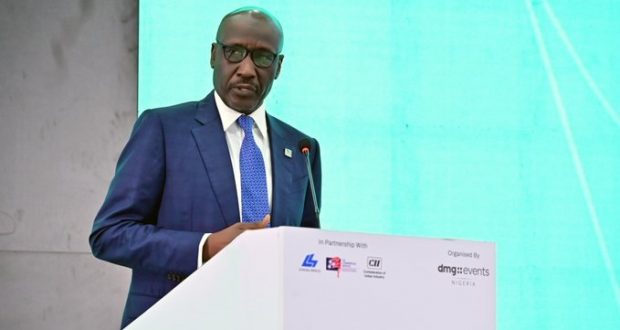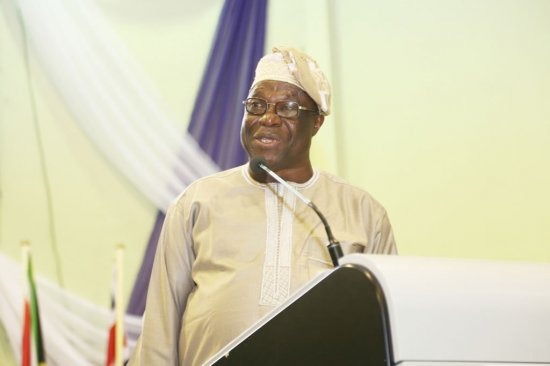The Group Chief Executive Officer (GCEO) Nigeria National Petroleum Company Limited (NNPCL) Malam Mele Kyari has dismissed some alleged accusations and impression being created across the oil and gas industry stakeholders that the NNPC is blocking the move by local investors who had espressed interest in acquiring some IOCs divested assets. Adding that NNPC is not discouraging the IOCs from divesting their onshore assets.
According to Kyari even NNPC will soon join the league of the IOCs in divesting some of its onshore assts. Pointing out that if the need arises, the NNPC will exit its current Petroleum Sharing Contracts (PSC) arrangements with some operators and source for funding under Incorporated Joint Venture (IJV) arrangement.
Speaking at the ongoing Nigerian Oil and Gas Energy (NOG) Week in Abuja, with the theme: “Powering Nigeria’s Sustainable Energy Future” the NNPCL boss insisted that the company no longer write rules regulating the oil and gas industry in Nigeria, as it has become a commercial and competitive player.
Kyari explained that with the enactment of the Petroleum Industry Act 2021 and the incorporation of NNPC Limited under the company law, the national oil company has become a competitor to the International Oil Companies, IOCs and other indigenous players in the industry.
Kyari said the company will bid and compete for all oil and gas assets in the country and other parts of the world just like every other companies.
He noted that with about 70 percent of Nigeria’s population not having access to clean cooking fuel and over 50 percent without access to electricity, there exists a huge market for energy companies in the country.
He pointed out that Nigeria’s energy challenge is a combination of several factors including availability, affordability and sustainability.
Despite these, he insisted that “this country is changing and I can tell you we are the competition. We are NNPC Limited. We don’t create rules anymore. We would create rules because we are regulated. We will pay taxes and royalties like anyone and will also pay a dividend to our shareholders which includes many of you.
“So we are in business and business means competition. We are the private sector forget about the fact that we are today owned by the government 100 percent. By the way, you are also aware that we are going IPO very soon. We will sell part of our equity, it is in the law. And once that happens, we will not be any different from any other company”.
While acknowledging that NNPC Limited was still in a position to facilitate business, Kyari stressed that the company’s partnerships produce over 80 percent of the oil and gas in the country “either directly operating through our own upstream company or through our partnerships with our joint venture partners”.
He disclosed that assets in the production sharing contracts, PSCs, were no longer in NNPC Limited balance sheet as it now operates as an agent of the government and it is paid a fee.
Also speaking, the Permanent Secretary, Federal Ministry of Petroleum Resources, Ambassador Gabriel Aduda disclosed that the Federal Government no longer sees natural gas as its energy transition fuel but as a destination fuel to provide energy access and to power the economy.
On energy transition, he said: “We think we should be able to do that at our own pace, and our own agenda as Africans and not to be muscled out of what God has given to us as natural resources. We need to pay specific attention in this industry. I want to actually put forward this morning that Africa is doing better than any other continent on renewable energy”.
In his address, the Secretary General of the Organisation of Petroleum Exporting Countries, OPEC, Mr. Haitham Al Ghais noted that with over 750 million in the world without access to electricity, it was unwise for Western countries to end investment in oil production.
He disclosed that OPEC Oil Market Outlook for 2024 showed that the demand for oil will grow by 23 per cent, adding that the organization will continue to work with its members to promote investment in the industry.
In his presentation, the Deputy Group CEO, Oando Plc, Mr. Omamofe Boyo disclosed that about $15 to $20 billion is needed to build gas infrastructure in the country, adding the government could not be relied on to provide the funding.
He noted that with about $800 trillion worth of gas, Nigeria remains the dominant player in the gas supply industry in Africa and the ninth largest in the world.







